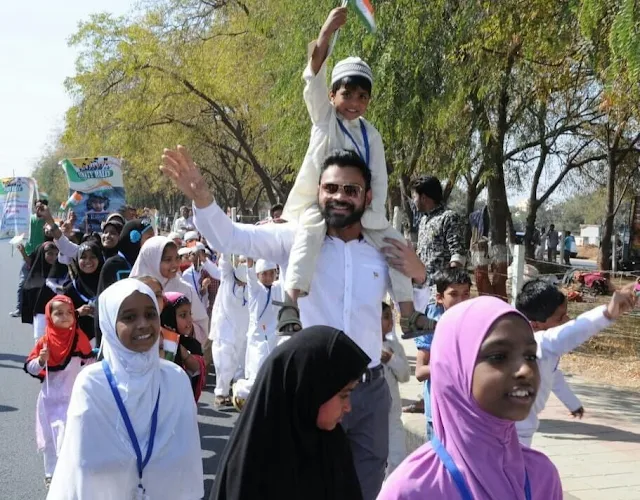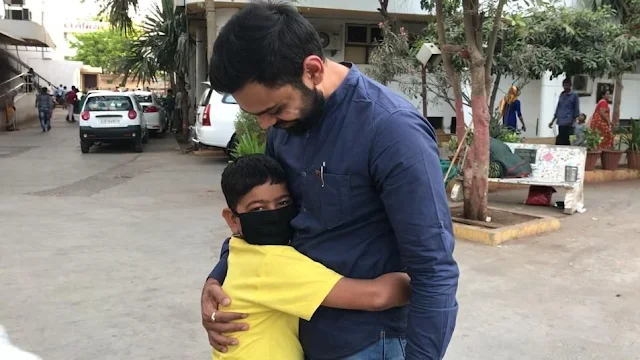 |
| Vyom Amin with at a unity rally |
Hatemongers have been misusing social media to hurl abuses on communities they dislike. But here is a young, highly-qualified Hindu Good Samaritan who has been silently doing humanitarian work through social media to give a one tight slap on the face of fanatics.
Meet Vyom Amin, a 29-year-old cybernaut and restaurateur from Gujarat capital Gandhinagar. His heart bleeds for the poor and needy, irrespective of their caste or community. Doing a yeoman’s service for the past six years, he last week turned a saviour for three pre-teen Muslim schoolgirls whose father Umar Qureshi had lost his driver’s job during the Covid-induced lockdown and was struggling to make even both ends meet.
On getting wind of Qureshi’s tale of woes and his inability to pay the fees of his three daughters, Amin, as usual, wasted no time in appealing to his generous friends for help through various social media platforms. Within a few hours, Rs 14,000 was collected and handed over to Qureshi much to the chagrin of frenetic Hindu netizens.
 |
| Blood disorder patient Fardeen with Amin |
In yet another case not long ago, Amin also rushed to the rescue of Vadodara’s rickshaw driver Yakub Multani whose 12-year-old son Fardeen was suffering from a serious blood disorder and had to be taken all the way to Ahmedabad now and then for free treatment and medicines. Told of Multani’s helplessness in commuting between the two cities during the lockdown, Amin passed round the hat in the social media and within two hours, Rs 10,000 was deposited in Multani’s bank account.
 |
| Amin paid fees of 3 sisters |
When his Muslim friend Riaz Khan recently told him that 48-year-old Yasinkhan Khokher was stabbed and looted by thieves in Radhanpur in northern Mehsana district, and was gasping for breath in hospital after the murderous assault, Amin and his friends quickly collected Rs 14,000 and paid the victim’s medical bills.
A soft-spoken, self-effacing Amin, an engineering degree holder with a Masters in Public Administration, said that he was only doing his duty as a human being but more people should come forward for this noble cause and promote communal amity instead of spreading hatred through social media.
Leading communal unity rallies with Hindu and Muslim students, even as working to convince poverty-stricken parents of child labourers to send their children to school, Amin, along with his eager-beaver friends, never misses an opportunity to do his damnedest to help people in distress.
He saw to it that a down-at-heel slumdweller’s 12-year-old daughter with a fractured leg was able to walk again after six months, an old two-wheeler was donated to a brilliant Class XII girl who had lost her father, and a truckload of household goods was delivered to poor villagers in Banaskantha district.
“When some genuine person needs help, we should immediately provide succour without knowing whether the needy person is a Hindu or a Muslim, a Dalit or a Christian,” sums up Amin who cares two hoots for those who criticise him for supporting Muslims.
---
*Senior journalist based in Ahmedabad. A version of this article was first published in Clarion India

Comments